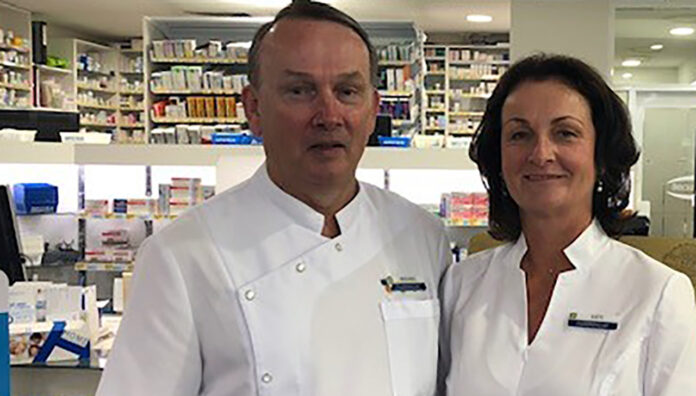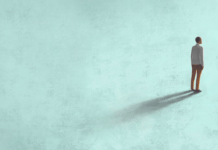From a finger ‘hanging half off’ to losing thousands of dollars worth of stock due to a power cut, Kate and Michael Knynenburg MPS have seen it all during their 25 years at The Gap Day and Night Pharmacy in Queensland. But it’s the personal connections that have had the biggest impact.
‘Pharmacy is still, definitely, a people profession to the core,’ Ms Knynenburg told Australian Pharmacist from her pharmacy in the north-west suburbs of Brisbane.
The pair has faced some challenging situations over the years, including this year’s pandemic, which meant not only putting up Perspex screens, wearing masks and providing hand sanitiser, but also keeping customers calm.
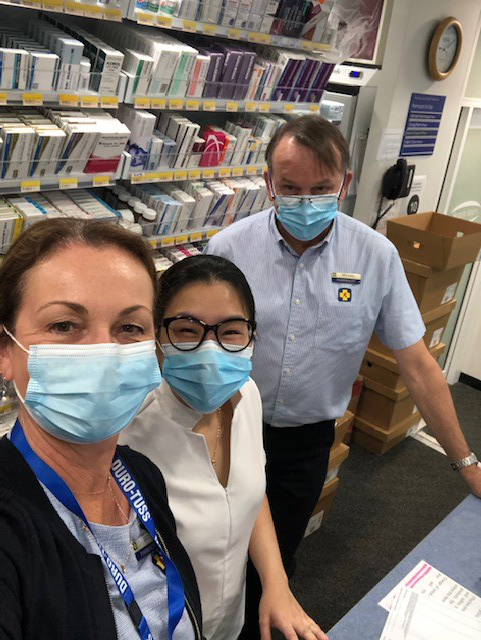
Then there was the time the power was cut, and the pharmacy lost $17,000 worth of refrigerated stock.
‘There have been a couple of emergencies over the years, too, like the customer who was having a pretty bad asthma attack and we needed to dial 000,’ Ms Knynenburg said.
‘And the hundreds of minor things like digging ticks out, examining cuts and scratches, dealing with burns and telling people when they need to go to the doctor’s surgery – conveniently next door – because they have a finger hanging half off.
‘But, generally, it’s about feeling that you are making a difference to your customers. As in all community pharmacies, we are the first point of contact for advice on how a condition should be managed – almost like a triage system.’
Celebrating a milestone
The Knynenburgs have created a window display to celebrate their 25 years in business, featuring old prescription books and pill rollers on loan from PSA.
Reactions to the memorabilia have been the same as when Ms Knynenburg would bring out her trusty typewriter to create labels when the power went down.
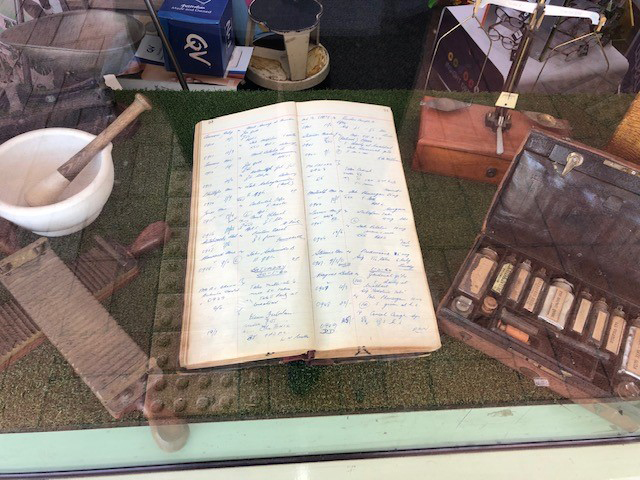
‘Some of the younger staff didn’t know what it was,’ she said.
‘Technology is amazingly advanced now, but it’s keeping pharmacy interesting and taking service to a new level.
‘People phone or email scripts in and we have a website, a Facebook account and Instagram. Keeping on top of that in itself is a full-time job.’
While she may not remember everyone’s name, Ms Knynenburg usually knows where they live and what medicines they take.
‘Our memories are mixed up with people and staff … When Michael and I first came here, our older son, Joseph, was two. I came back to work when my next baby, Sam, was 9 months old,’ she said.
‘Now, my children are 27 and 21, and small children who used to come in with their parents are coming in with their own children.’
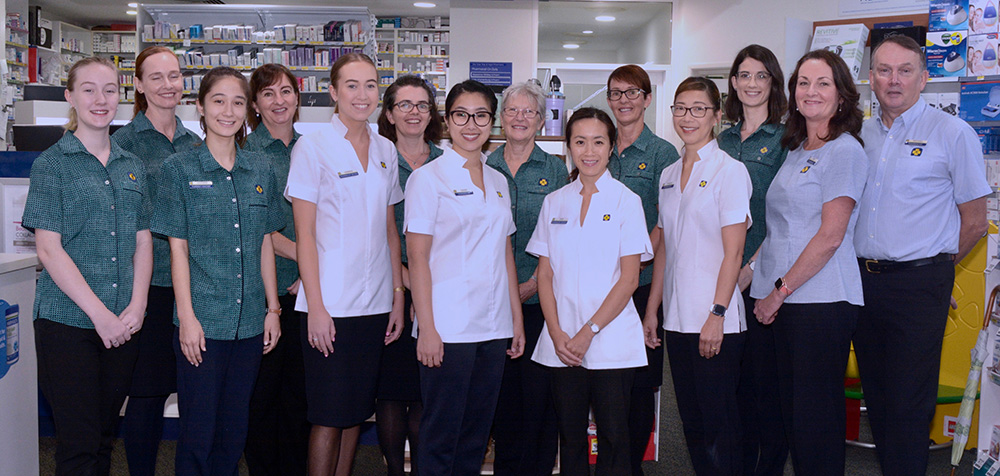
She also remembers the dozens of staff members she has mentored over the years.
‘[We have] a team of 25 that includes six to eight pharmacists, and because we are open from 8.30 am until 8 pm, 7 days a week, we’ve had a lot of casual staff and students,’ she said.
‘It’s lovely to see those students later as fully-fledged professionals and know you have had a part in building their confidence.’
After more than 2 decades, the pair, who have worked together for 35 years, are still firmly focused on the future.
‘We are always trying to take our business to the next level,’ Ms Knynenburg said.
‘We started doing vaccinations 2 years ago and that’s been a great chance to have a chat with our customers about their health and their lives.’
For younger pharmacists thinking of taking the plunge and buying a business, Ms Knynenburg advised starting with a partner – as she and Michael did – before going it alone.
‘With the right partner, your skills and confidence will increase,’ she said.
‘Ownership of a business is challenging and rewarding and learning about taking full responsibility.’



 Pharmacists have always prescribed, but they have the potential to prescribe much more
Pharmacists have always prescribed, but they have the potential to prescribe much more



 Sponsorship information
Sponsorship information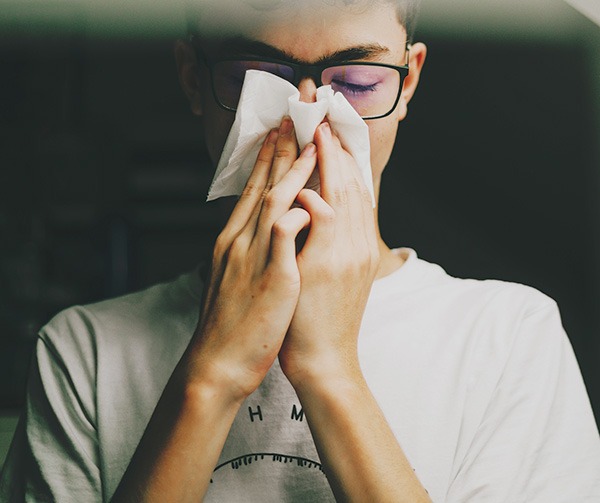
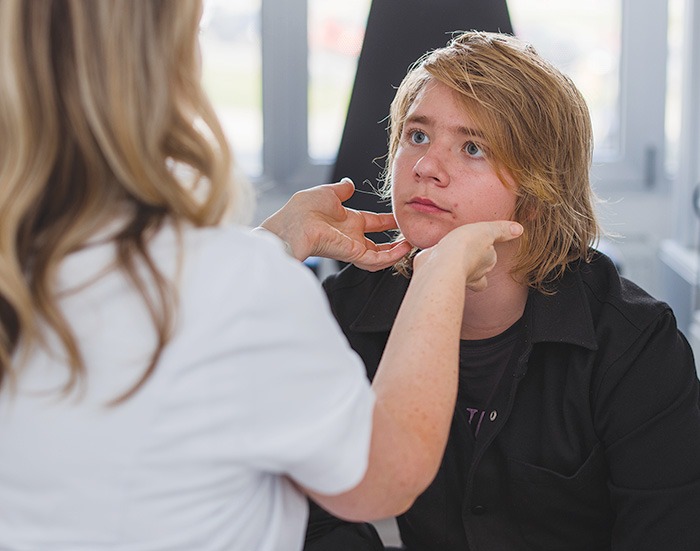
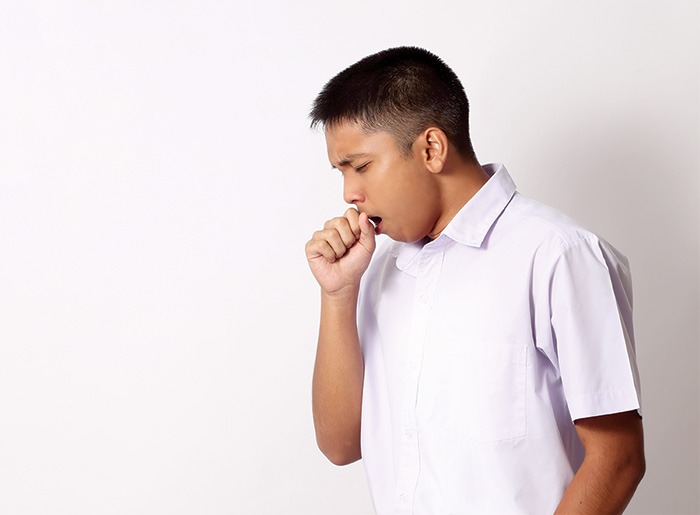
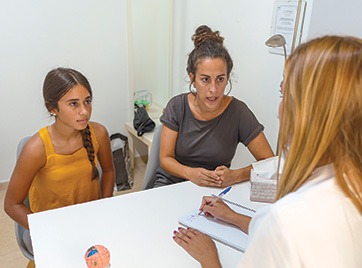 Talking to patients who have questions
Talking to patients who have questions